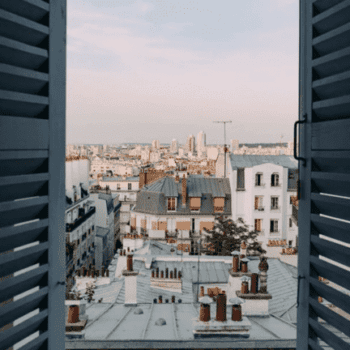 In less than two decades, short-term rentals have thoroughly transformed the hospitality industry, wresting 15% market share from hotels. From a feel-good pioneer of the sharing economy to a $100bn behemoth, Airbed and Breakfast, better known as Airbnb, has revolutionized hospitality from its beginnings in 2007 — creating a whole new market in the process. But what happens to a community when Airbnb comes to town? Let’s take a deep dive into the impact of STRs, in particular Airbnb, and how communities are reacting.
In less than two decades, short-term rentals have thoroughly transformed the hospitality industry, wresting 15% market share from hotels. From a feel-good pioneer of the sharing economy to a $100bn behemoth, Airbed and Breakfast, better known as Airbnb, has revolutionized hospitality from its beginnings in 2007 — creating a whole new market in the process. But what happens to a community when Airbnb comes to town? Let’s take a deep dive into the impact of STRs, in particular Airbnb, and how communities are reacting.
Paris moves to regulate STRs
In the beginning, STRs were expected to mount a serious challenge to hotels. However, in their 2017 study, Dr. Inès Blal and Dr. Cindy Heo of EHL Hospitality Business School, in collaboration with Miju Choi of Leeds Becket University, found, that “as Airbnb gains in popularity and its supply increases, rentals are less profitable for their hosts”. After the gold rush, hosts’ profits largely plateaued. Their data pointed to an 80% occupancy rate for hotels versus a 55% rate for STRs over the period 2009-15 despite an explosion in the supply of rooms in 4- and 5-star hotels.
Citing a Deutsche Bank analysis, hotels’ profitability, measured by revenue per available room (RevPar), was “maintained” over the period. They concluded that, by and large, “the two products are not in direct competition.” Their work punctured the myth that Parisian hotels were being pounded by STRs. Indeed, “We’ve never seen ourselves as in competition with hotels,” David Whiteside, the global chief operating officer at Onefinestay, a luxury STR firm acquired by Accor Hotels in 2006, told the New York Times’ Elaine Glusac earlier this year.
How have hotels reacted? In short, hotels have begun to look more like short-term rentals (e.g., room to work remotely, etc.) while short-term rentals (STRs) have begun to look more like hotel rooms (e.g., concierge services, etc.).
If STRs haven’t doomed the hotel industry then who is suffering? In short, cities.
In 2022, some 44 million tourists visited Paris, making it the world’s most popular destination. For one local official, Airbnb has been a ‘catastrophe’ for the city center. And the City of Light has moved aggressively to regulate the industry. Hosts can rent out their primary residence for a maximum of 120 days a year and must register their rental with city hall. Fines can be steep. Enforcement, however, remains an open question.
Growing resentment of the sharing economy
For many, initial goodwill towards the sharing economy has eroded and resentment has grown. Airbnb, like its contemporaries in the P2P economy (e.g., Uber, Doordash and their ilk), is the middleman, the intermediary charging customers what they consider exorbitant commissions. “But Airbnb also has a different set of resentments that make it not less hated, perhaps, but hated differently in ways that might be harder for the company to fix,” according to a New York Times article. In other words, even non-users are affected by Airbnb in the form of higher rents, transient ‘neighbors’ and the deterioration of the social fabric of their communities.
In New York City, which is battling STRs in the name of affordable housing, listings have plummeted 77%, according to AirDNA, since restrictions were put in place. But will regulations slow rampant gentrification, a ‘forever problem’ in city, in the long term? Inside Airbnb, which describes itself as a “mission driven project that provides data and advocacy about Airbnb’s impact on residential communities” has compiled data that visually exposes the extent of STRs presence in various cities. In 2022, there were more STRs in the city than long-term apartments to rent, choking options for families in particular.
Airbnb benefits the countryside
For Jamie Lane, senior vice president of analytics and chief economist at AirDNA, a firm that analyzes Airbnb data, “We’ve seen the strongest demand in small and midsize cities, coastal and mountain locations and areas outside of major urban centers,” where hotels tend to be in short supply. In rural Britain, far-flung destinations are now within reach, providing travelers, such as hikers, a place to stay.
Recognizing the potential market, Airbnb even created a filter for countryside rentals. Its market expansion in rural France has breathed new life into sleepy villages and towns that do not have a major attraction, such as a ski or beach resort, to draw tourists. Local officials hope to ride the post-pandemic wave in France’s bucolic countryside.
“Basically one giant Airbnb”: A town made for short-term rentals
The pandemic pushed people out of cities, with many wealthier individuals snatching up second homes in the country. When inflation struck, many sought to monetize their investment as supplemental income. For example, the supply of STRs in the U.S. for October 2022 jumped 23.3% versus October 2021. “That’s massive growth”, stated Mr. Lane, although bookings over the same period dropped 6%. More supply didn’t mean more demand, it turns out.
One lake town in rural Oklahoma took things to the extreme. “Airbnb built this town 100 percent,” says the mayor of Hochatown where STRs have jumped from 400 to 2,400 in the five years since the pandemic. “The town is basically one giant Airbnb,” said David Francis, a government official. The resort town created from nothing (but within the tentacular reach of Dallas, Texas) is struggling because profits have been prioritized over planning or infrastructure.
The town’s population explodes from 219 to some 50,000 on weekends yet it still doesn’t have its own police force, for example. Water infrastructure is woefully lacking. And, for many, the bubble has already burst. Since its peak, occupancy rates have fallen to 40% and, after an astronomical rise, home prices have sagged — leaving residents and investors fearing the worst.
Short-term rentals vs. affordable housing
In Málaga, Spain residents are fighting back. Stickers are plastered in front of buildings where single-family units have been converted into Airbnbs…they tell tourists “Go back home” or “A family used to live here” or “Attack against citizens of the city”. Housing is a top concern for residents who, according to Dani Romero the movement’s accidental founder, have had enough: “It’s neighbors who are fed up because this is an issue that affects absolutely all of us.”
Romero, like many others, was squeezed out of his apartment by a landlord who converted the space into a short-term rental. A working professional, Romero found he could no longer afford an apartment in the city. His is one of countless cautionary tales reflecting how the sharing economy has made housing unaffordable in cities.
From super host to community leader
Would you walk away from a monthly salary of $12,000? That’s just what Precious Price, a native of Atlanta, Georgia did. She started in 2019 by renting out her home when on business trips. A young woman of color from a modest background, she steadily built a portfolio of STRs that netted her six figures in annual income. “Everyone has their own ethical compass and mine just felt off with what I was doing,” she told the New York Times.
Her reckoning came after turning away would-be renters who were seeking long-term housing. She found herself on the “frontlines” of the housing crisis and the people, including single mothers and students, she was shunning in favor of well-off vacationers resembled the members of her own extended family. In the flip of a switch, she realized what she needed to do. She now rents her properties long term and has become an advocate for tiny homes and other forms of affordable housing. While her income has fallen drastically, she says she is more fulfilled.
#Airbnbust
In recent years, Airbnb has suffered from a litany of well-publicized problems: robbery, security cameras, a currency issue in Australia, a lawsuit against an NYC ban, illegal Airbnbs in Manhattan, ban on parties, an unceremonious retreat from China, so-called catfishing, impact on affordable housing, subletters renting out their flat, ire over professional hosts, aiding ‘hit and run’ tourism, etc. Perhaps most critically, the glut in the market has led to flagging profits for many hosts, which spawned the term ‘airbnbust’. The company has even become fodder for comedians. These may be isolated events but, taken together, paint an unsavory picture of the company.
So where does that leave us? For 2024, reports point to the $64bn STR market “settling” instead of entering a long-term decline. A boon for some, a bane for others, short-term rentals, with Airbnb leading the way and absorbing the biggest blows, will undoubtedly remain an important part of the hospitality landscape in one form or another.

































